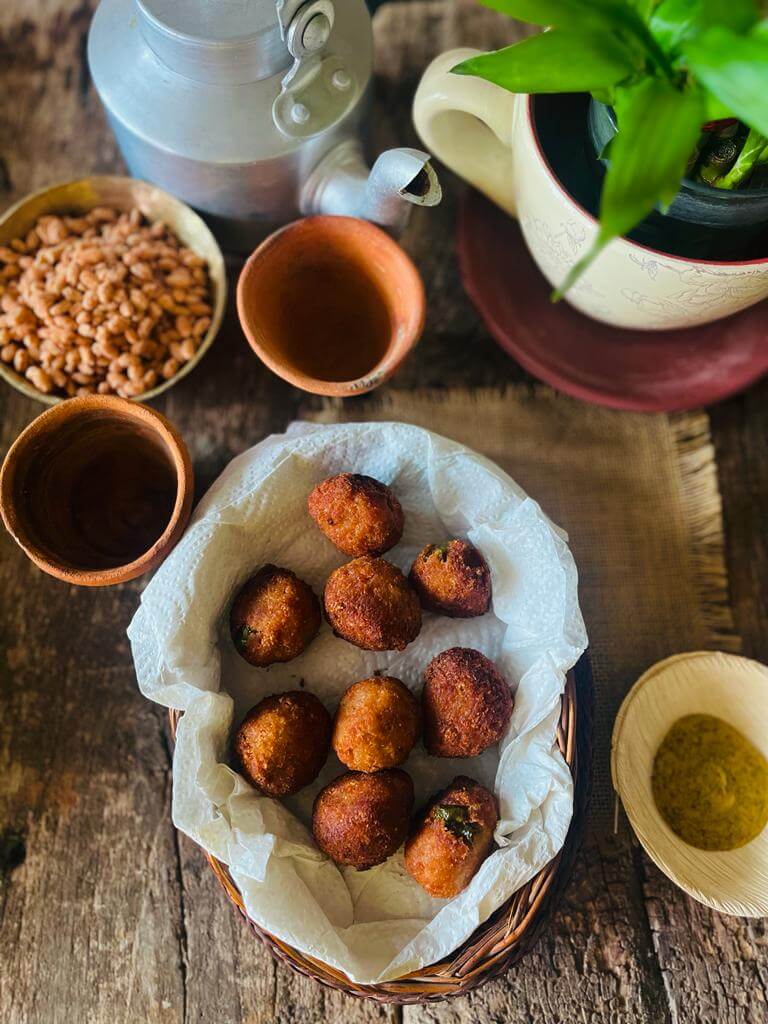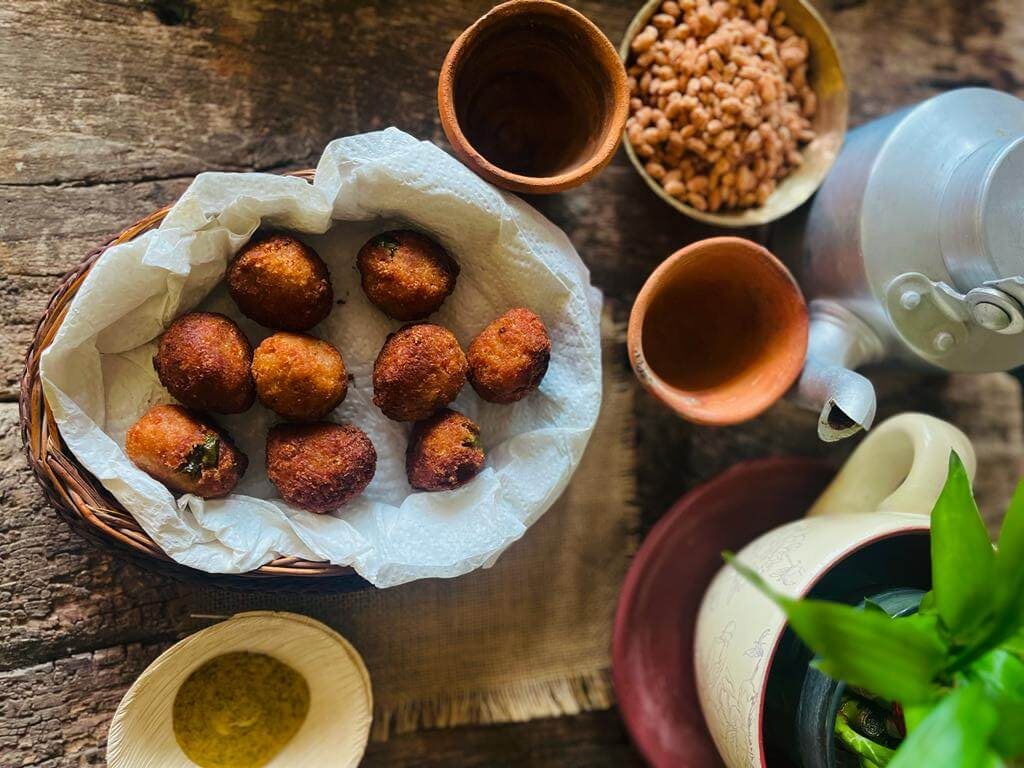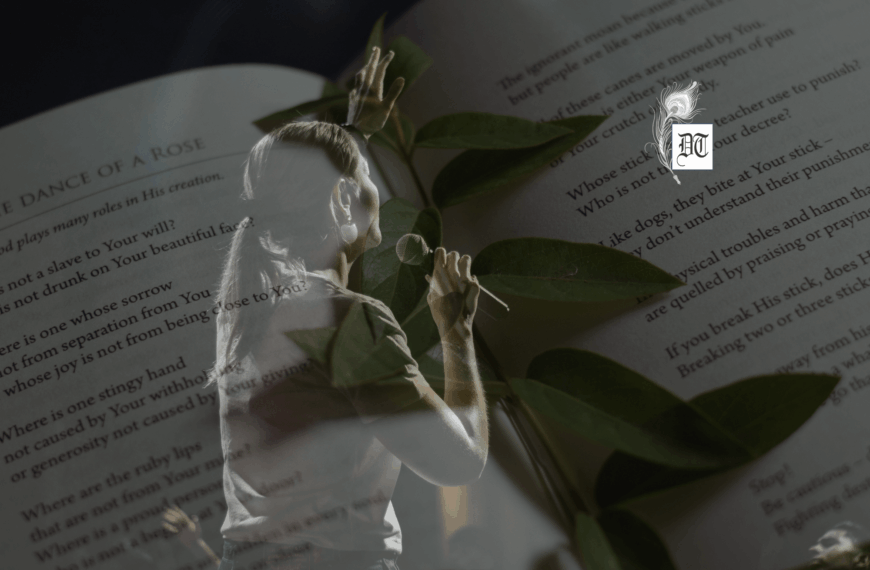Sarika explores the fading significance of traditional Bengali nursery rhymes and rice varieties, reflecting on changing eating habits and introduces a savoury snack called “Khoi er bora”. A Durga Puja special, exclusively for Different Truths.
An old nursery rhyme, maa used to sing during the early childhood days is a tale of Shiva, a marine trader. He was treated by his in-laws with beaten rice of Sali, commonly called Chireh, and Khoi (popped rice) of the Binni variety. and Sabri kola (banana), a type of famous yogurt. These rhymes are now in ancient times, no one read them for their kids. At the same time, the delicacy of those varieties of rice also disappeared from most of the Bengali meals. Another rhymes associated with my early childhood
Kalam-Kathir patla chire, Hamai dhaner khoi,
Chini-atop chaler payes, khabe eso soi.
Traditional foods and rituals no longer have the same meaning. One major reason is that rice varieties associated with them are no longer in use.
Rice plays a pivotal role in the Bengali platter.
Rice plays a pivotal role in the Bengali platter. You see its touch in the breakfast also, however, in a different form. Traditional breakfast consists of puffed rice(muri), the beaten form of rice is called “Chira” and the fried form is called “Khoi” Milk, and fruits are also consumed in breakfast.
In village areas (mostly in Bengal Province, people use the previous day’s leftover rice (sometimes fermented) as the next day’s breakfast. It is also called panta-bhat.
Many things changed over the period. Now very few people eat rice at least for breakfast. In our house rice is a very rare phenomenon. We eat rice or rice products not more than 2/3 meals in a week. Our son barely eats rice and Muri, Khoi, or Chireh and doesn’t show any love towards these kinds of food.

I feel we Bengalis love our Khoi, and Muri in various forms.
I feel we Bengalis love our Khoi, and Muri in various forms. My non-Bengali friends believe that these are always available in our pantries. However this is not true, I know many youngsters, teens, and even kids who barely show any interest in these kinds of food.
Prepared Khoi er bora (popped rice fritters) on his last vacation when he was at home. The fritters were savoury so he kind of liked it.
The earthiness of winter Khoi, The sweetness of grated coconut, Few mean chilies, Squashed Deep-fried into a golden brown
Khoi er bora: Ingredients
2 cups Khoi aka popped rice
1 cup freshly grated coconut
3 finely chopped green chilies
3 tbsp rice flour
Oil for frying
Salt to taste
Method
In a bowl take the Khoi, and add chopped green chilies, coconut, and rice flour.
Splash water into the Khoi, in little increments and mash the mix till it is just sticky enough to form a soft dough ball.
Heat oil and deep fry the balls until gorgeous golden.
Keep on a kitchen absorbent towel.
Serve hot with Kasundi (ethnic Bengali mustard sauce).
Photos by the author.






 By
By

 By
By